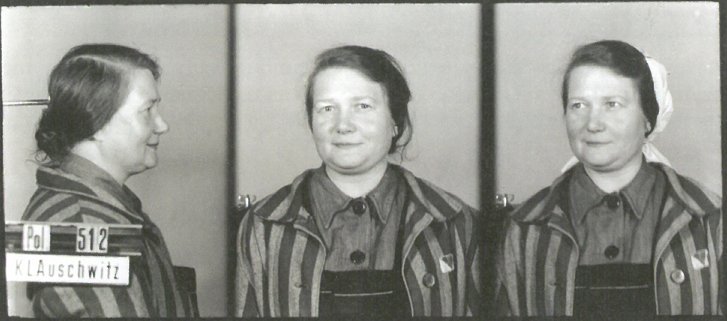
1,3 million people were deported to Auschwitz. Among some 400,000 people registered as prisoners, there were 131,000 women: 82,000 Jewish, 31,000 Polish, 11,000 Roma as well as Russian, Belorussian, German, French, Czech & Yugoslavian. #InternationalWomensDay #WomensHistoryMonth 







Women became prisoners of the German Nazi #Auschwitz concentration camp in late March 1942. The first two transports - of German female prisoners transferred from the Ravensbrück camp & Slovak Jewish women deported from Poprad - arrived on 26 March. #InternationalWomensDay 

From transports of Jews deported by Germans for extermination to #Auschwitz SS doctors selected hundreds of thousands of women & girls to be murdered in gas chambers immediately after their arrival. Pregnant women & mothers with babies were murdered too. #InternationalWomensDay 







4 female Jewish prisoners of #Auschwitz smuggled explosives used during the #Sonderkommando revolt in October 1944: Ella Gartner, Róża Robota, Regina Safir and Estera Wajsblum. They were hanged on 6 January 1945. lekcja.auschwitz.org/en_10_sonder/ #InternationalWomensDay 







Janina Nowak was a Polish woman deported to #Auschwitz on 12 June 1942 & registered as number 7615. She was the first women who escaped from Auschwitz. She was arrested again, not recognized & imprisoned in the camp again. She survived. #InternationalWomensDay 



Jewish female prisoner Mala Zimetbaum (born in Poland, deported from occupied Belgium) & Polish prisoner Edward Galiński fell in #love. On 24 June 1944 they tried to escape from #Auschwitz. It ended tragicly for both of them. Read their story. #InternationalWomensDay 





The fate of women at #Auschwitz was documented by artists-prisoners who risked their lives to create behind the wires. Mieczysław Kościelniak (camp no. 15261) in his two drawings showed camp existence & sorting of shoes of murdered people. #InternationalWomensDay 



Halina Ołomucka, camp no. 48652, created „The Bunker” in Auschwitz in 1944. The figure of the #mother with a #baby on her lap and another child clinging to her sleeve. Iconic image of human helplessness in the camp world. #InternationalWomensDay 

We need to remember that the story of #Auschwitz is also the story of female-perpetrators. Around 200 women served in the SS camp garrison: as guards (some were very brutal towards female prisoners), radio operators, nurses or secretaries. #InternationalWomensDay 



• • •
Missing some Tweet in this thread? You can try to
force a refresh















